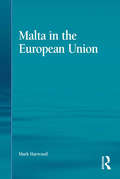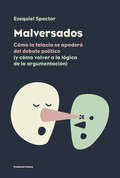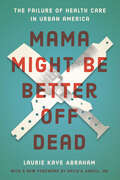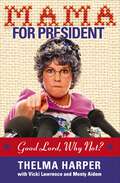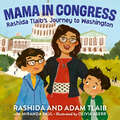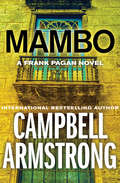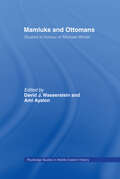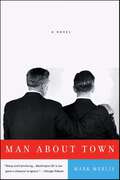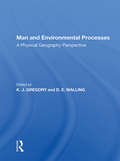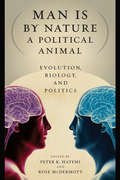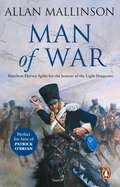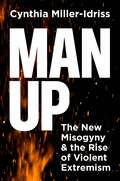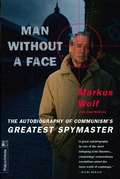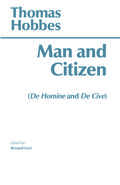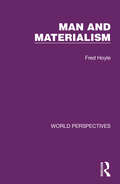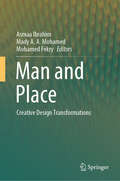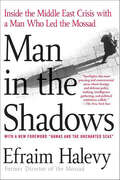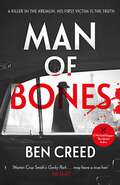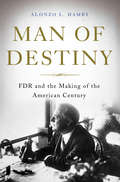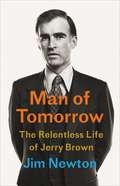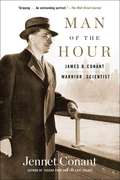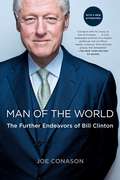- Table View
- List View
Malta in the European Union
by Mark HarwoodMalta has bucked the trend of its EU Mediterranean neighbours in many ways. This smallest of EU states barely dipped into recession during the global financial crisis and remains a stable member of the Eurozone whilst also having one of the lowest infringement rates and highest transposition of EU law records amongst the 28 member states. Providing the first comprehensive study of Malta's complex road to EU membership this book looks at the impact of membership on the country's political structures and processes and explains the principal factors that have conditioned the country's Europeanization experience. Reflecting Malta's unique and often contentious road to membership, the book explores the historical context and outlines how Maltese processes and policies have changed since membership and whether a causative link exists between these changes and Malta's membership of the EU. A wide range of primary and secondary sources facilitate the study complemented by a series of interviews with a broad range of Malta's political and social actors as well as individuals from EU institutions. This depth of analysis enables a holistic view of Malta's first decade of EU membership and helps establish the fundamental characteristics of Malta's unique Europeanization experience.
Malversados: Cómo la falacia se apoderó del debate político (y cómo volver a la lógica de la argumentación)
by Ezequiel SpectorUn libro que pone en evidencia cuáles son las quince trampas argumentativas más habituales en los debates políticos y nos da las herramientas para recuperar la lógica de la argumentación racional, base de la democracia deliberativa. La forma de debate más habitual en los medios -con réplica en las redes sociales- consagra "ganador" a quien da el mejor golpe de efecto. En el mismo gesto en que nos acostumbramos a dirimir en términos de aclamación o condena, dejamos de prestar atención a cualquier tipo de argumento y nos contentamos con subir o bajar el pulgar. Cuando el contenido de una discusión íntima o pública, privada o mediática, se plaga de trampas argumentativas -en términos técnicos, falacias lógicas-, la verdad es la primera víctima. La pérdida de la capacidad de discutir ideas, sopesar argumentos y confrontar propuestas daña seriamente la cultura política de una sociedad y deteriora la democracia. En este libro, Ezequiel Spector pone en evidencia de modo práctico, concreto y lúcido las quince falacias más habituales en los debates políticos y presenta una guía útil para sortearlas y volver a discutir lógica, llana y, sobre todo, limpiamente. Porque sin honestidad intelectual no hay debate posible y sin debate no hay esfera pública, Malversados puede considerarse una oportuna herramienta de construcción de ciudadanía.
Mama Might Be Better Off Dead: The Failure of Health Care in Urban America
by Laurie Kaye Abraham“A provocative examination of our health care delivery for the poor. . . . Such an honest and candid account is essential.” —Alex Kotlowitz, national bestselling author of There Are No Children HereMama Might Be Better Off Dead immerses readers in the lives of four generations of a poor, African-American family from North Lawndale, Chicago, who are beset with the devastating illnesses that are all too common in America’s inner-cities. Headed by Jackie Banes, who oversees the care of a diabetic grandmother, a husband on kidney dialysis, an ailing father, and three children, the Banes family contends with countless medical crises. From visits to emergency rooms and dialysis units, to trials with home care, to struggles for Medicaid eligibility, Laurie Kaye Abraham chronicles their access—or lack thereof—to medical care. Their story reveals an inadequate health care system that is further undermined by the effects of poverty.Mama Might Be Better Off Dead is an unsettling, profound look at the human face of health care in America. This new edition includes an incisive foreword by David Ansell, a physician who worked at Mt. Sinai Hospital, where much of the Banes family’s narrative unfolds.“Goes to the heart of today’s problem. Powerful . . . deeply searching.” —Washington Post“A powerful indictment of the big business of medicine.” —Los Angeles Times“Abraham . . . illuminates the problems with passion and skill.” —Kirkus Reviews“This personally observed, lucid chronicle and call for reform of our ailing health system covers all levels of responsibility in the medical establishment.” —Publishers Weekly“Clearly identifies in human and policy terms how [healthcare] programs have failed a population desperately in need of help.” —Library Journal
Mama for President: Good Lord, Why Not?
by Vicki Lawrence Monty AidemListen Up, America! The solution to your problems has plopped right in your lap. Mama is running for president! Discover How President Thelma Harper would handle: Immigration—I’ll tell you how we solve the problem at our border: build senior citizen housing all along the American side. No one sees more than a nosy old lady peeking through her window blinds. Emergency Preparedness—Emergency response should be in the hands of the experts who have the resources and determination to respond quickly. I’m talking about Domino’s and Pizza Hut. Airport Security—As long as we have to take our shoes off, I will install a shoe-buffing brush inside the X-ray machine so your shoes will get a little shine as they go through. Animals—If I have a dog at the White House, I will have it spayed or neutered to control its sex drive, which is something that might have been a good idea for some of our previous presidents. Thelma Harper is running for president, and the free world will never be the same!
Mama in Congress: Rashida Tlaib's Journey to Washington
by Miranda Paul Rashida Tlaib Adam TlaibAn inspiring picture book that tells the story of Rashida Tlaib, one of the first Muslim women elected to Congress, and her family. Perfect for readers of books that celebrate trailblazing women and social activists as well as those looking for an introduction to civic engagement and how government works."Hey Adam, is the president Mom's boss now?"When Yousif Tlaib asks about his mom's new job in Congress, his older brother, Adam, fills him in—with some help from Rashida Tlaib herself. As he tells his mom’s story, Adam reveals information about how elections and our government work, what it means to break barriers, what motivates their mama to work for justice for all, and how love and family have guided them through this historic time in our country.From growing up in Detroit—the eldest of fourteen siblings and the first in her immigrant family to graduate from high school—through her journey into community activism and then local politics, to eventually becoming one of the first Muslim Congresswomen and an influential national figure, Rashida Tlaib's inspiring story shows kids that they, too, can do great things and make a difference.
Mambo (The Frank Pagan Novels #3)
by Campbell ArmstrongIn international bestselling author Campbell Armstrong&’s pulse-pounding thriller, the hunt for a ruthless bomb maker takes Frank Pagan to Cuba and into the midst of a startling conspiracy Gunther Ruhr, a.k.a. the Claw, is a terrorist responsible for hundreds, possibly thousands, of deaths. A passenger jet, a busload of soccer players, and an entire hotel full of tourists have all been targets of his extravagant, almost artistically designed explosions. He will kill anywhere and for anyone if the price is right. Now it&’s up to Detective Frank Pagan to track down the depraved killer and escort him to prison. Along the way, from Glasgow to London and on to Miami and Havana, Pagan will have to shore up a leak in Scotland Yard; get reacquainted with his old flame, Magdalena; and uncover a plot involving a cruise missile, Fidel Castro, and an international banking syndicate.Mambo is the 3rd book in the Frank Pagan Novels, but you may enjoy reading the series in any order.
Mamluks and Ottomans: Studies in Honour of Michael Winter (Routledge Studies in Middle Eastern History)
by Ami Ayalon David J. WassersteinFocusing on Near Eastern history in Mamluk and Ottoman times, this book, dedicated to Michael Winter, stresses elements of variety and continuity in the history of the Near East, an area of study which has traditionally attracted little attention from Islamists. Ranging over the period from the thirteenth to the nineteenth century, the articles in this book look at the area from Istanbul down through Syria and Palestine to Arabia, the Yemen and the Sudan. The articles demonstrate the great wealth of the materials available, in a wide variety of languages, from archival documents to manuscripts and art works, as well as inscriptions and buildings, police records and divorce documentation. The topics covered are equally as varied and include Dufism, the festival of Nabi Musa, military organisations, doctors, and charity to name but a few.
Man About Town: A Novel
by Mark MerlisA congressional adviser and habitué of a cozy circuit of bars inside the Beltway, Joel Lingeman never quite felt middle-aged. At least not until he was abandoned by his partner of fifteen years and suddenly thrust into a dating scene with men half his age and no discernible trace of love handles. But this unexpected hole in his life inspires Joel's search for a 1964 edition ofan Esquire-like magazine that contained a swimsuit ad that obsessed and haunted him throughout his youth. Determined to find out what happened to the model shown in the ad, Joel slowly begins to understand what has happened to his own life. Sexy, smart, and deftly observed, Man About Town is a new twist on the idea that the personal is political and a must read for anyone who's ever wondered what happened to that first crush.
Man Against Myth
by Barrows S Dunham"Man Against Myth" by Barrows S. Dunham is a provocative and insightful exploration into the myths that have shaped human thought and society. First published in the mid-20th century, this book challenges readers to question the accepted truths and societal norms that often go unexamined.Dunham, a philosopher and social critic, meticulously deconstructs various myths that pervade culture, politics, and religion. Through his sharp analysis and engaging prose, he reveals how these myths influence behavior, perpetuate stereotypes, and hinder progress. His work is a call to intellectual liberation, encouraging individuals to think critically and embrace reason over tradition."Man Against Myth" is celebrated for its clarity, wit, and fearless approach to controversial topics. Dunham's arguments are supported by historical examples, making the book not only a critique of myth but also a rich tapestry of human history and thought. His ability to blend philosophy with practical wisdom makes this book a timeless and relevant read.For anyone interested in philosophy, sociology, or simply understanding the forces that shape human belief, "Man Against Myth" offers a compelling and enlightening perspective. Dunham's work remains a significant contribution to the ongoing dialogue about truth, reason, and the power of myth in human society.
Man And Environmental Processes: A Physical Geography Perspective (Studies In Physical Geography)
by K. J. GregoryThe aim of the present volume is to review the effects of human activity on physical environment processes, and this is justified not only as a complement to the approach taken by G. P. Marsh his volume Man and Nature (1864), but also as a sequel to the work produced since 1864, with contributions since the mid-nineteenth century to the study of th
Man Is by Nature a Political Animal: Evolution, Biology, and Politics
by Rose Mcdermott Peter K. HatemiIn Man Is by Nature a Political Animal, Peter K. Hatemi and Rose McDermott bring together a diverse group of contributors to examine the ways in which evolutionary theory and biological research are increasingly informing analyses of political behavior. Focusing on the theoretical, methodological, and empirical frameworks of a variety of biological approaches to political attitudes and preferences, the authors consider a wide range of topics, including the comparative basis of political behavior, the utility of formal modeling informed by evolutionary theory, the genetic bases of attitudes and behaviors, psychophysiological methods and research, and the wealth of insight generated by recent research on the human brain. Through this approach, the book reveals the biological bases of many previously unexplained variances within the extant models of political behavior.<P><P> The diversity of methods discussed and variety of issues examined here will make this book of great interest to students and scholars seeking a comprehensive overview of this emerging approach to the study of politics and behavior.
Man Of War: (The Matthew Hervey Adventures: 9): A thrilling and action-packed military adventure from bestselling author Allan Mallinson that will make you feel you are in the midst of the battle (Matthew Hervey #9)
by Allan MallinsonPerfect for fans of Patrick O'Brian, Bernard Cornwell and CS Forester, another engrossing Matthew Hervey adventure from the pen of THE SUNDAY TIMES BESTSELLING AUTHOR Allan Mallinson. "Hervey's thrilling battles against the vivid backdrop of the developing British Empire make for richly engaging storytelling" -- DAILY MAIL"Captain Matthew Hervey is as splendid a hero as ever sprang from an author's pen" -- THE TIMES"The heir to Patrick O'Brian and C. S. Forester" -- OBSERVER"Absolutely brilliant" -- ***** Reader review"An absolute delight" -- ***** Reader review ***********************************************************1827: Britain and the MediterraneanCaptain Sir Laughton Peto, recently engaged to Matthew Hervey's sister, is sailing his mighty line-of-battle ship towards Navarino Bay, and war with the Turks.Six months on, and Matthew Hervey is in London recovering from another bout of malaria and the wound from his battle with the Zulu. All is set for his marriage to the eminently suitable Lady Lankester, and his return to active duty at the Cape. But trouble lies ahead as familial commitments clash with affairs of the heart and Hervey finds himself embroiled in a military inquiry that could result in public humiliation. As the cataclysmic battle of Navarino Bay looms ever closer for Peto and his crew, Hervey faces a crisis that could change both his life and his military career...Man of War is the ninth book in Allan Mallinson's Matthew Hervey series. His adventures continue in Warrior. Have you read his previous adventures A Close Run Thing, The Nizam's Daughters, A Regimental Affair, A Call to Arms, The Sabre's Edge, Rumours of War, An Act of Courage and A Company of Spears?
Man Up: The New Misogyny and the Rise of Violent Extremism
by Cynthia Miller-IdrissThe revelatory and urgent story of how an explosion of misogyny is driving a surge of mass and far-right violence throughout the West—from an internationally recognized extremism expert and media commentatorWhat two things do most mass shooters, terrorists, or violent extremists have in common? Most of us know the first: they are almost always men or boys. But the second? They are almost always virulent misogynists, homophobes, or transphobes—even if they are also motivated by racism, antisemitism, or xenophobia. The antigovernment militiamen charged with plotting to kidnap and execute Michigan governor Gretchen Whitmer used language saturated with misogyny, with one telling an FBI informant, &“Just grab the bitch.&” The men who killed scores at Virginia Tech, the Pulse nightclub, and a Maryland newsroom all had prior reports of stalking, domestic violence, or harassment of women. And in dozens of other incidents—from North America to Norway to New Zealand—an increasing number of misogynist incel (involuntary celibate) and male supremacist attackers have explicitly targeted and killed women, blaming feminism or sexual frustration with women as motivation for their attacks.Yet, despite all evidence, the bright red thread of misogyny running through these attacks is barely acknowledged by the media or even experts—and this failing leaves us powerless to stop the violence. In Man Up, Cynthia Miller-Idriss, a leading expert on extremism, addresses this crucial oversight head-on, revealing how an epidemic of misogyny—both online and off—and a patriarchal backlash are driving an exponential rise in mass and far-right violence. She also offers essential strategies that all of us—including parents, teachers, and counselors—can use to fight the rising tide of violence, beginning with recognizing the misogyny that pervades our everyday lives.
Man Without A Face
by Markus Wolf Anne McelvoyFor decades, Markus Wolf was known to Western intelligence officers only as "the man without a face. " Now the legendary spymaster has emerged from the shadows to reveal his remarkable life of secrets, lies, and betrayals as head of the world's most formidable and effective foreign service ever. Wolf was undoubtedly the greatest spymaster of our century. A shadowy Cold War legend who kept his own past locked up as tightly as the state secrets with which he was entrusted, Wolf finally broke his silence in 1997. Man Without a Face is the result. It details all of Wolf's major successes and failures and illuminates the reality of espionage operations as few nonfiction works before it. Wolf tells the real story of Gunter Guillaume, the East German spy who brought down Willy Brandt. He reveals the truth behind East Germany's involvment with terrorism. He takes us inside the bowels of the Stasi headquarters and inside the minds of Eastern Bloc leaders. With its high-speed chases, hidden cameras, phony brothels, secret codes, false identities, and triple agents,Man Without a Face reads like a classic spy thriller--except this time the action is real.
Man and Citizen: (De Homine and De Cive)
by Thomas Hobbes Bernard GertA reprint of the 1972 Doubleday edition. Contains the most helpful version of Hobbes's political and moral philosophy available in English. Includes the only English translation of De Homine, chapters X-XV. Features the English translation of De Cive attributed to Hobbes.
Man and Materialism (World Perspectives #10)
by Fred HoyleOriginally published in 1957, this book offers a challenging intellectual experience to the reader who wishes to understand the broad historical trends that determine the future of humanity on this planet. The book examines natural laws that govern humanity by looking at communities over long periods of time and noting patterns which become evident. The book includes discussions of communism, the crisis in food and population growth, the significance of industrialism and man and his religious beliefs – all issues that remain as relevant today as when the book was first published.
Man and Place: Creative Design Transformations
by Asmaa Ibrahim Mohamed Fekry Mady A. A. MohamedThis book is a result of the 1st ARCH and DESN International Conference (previously Memaryat) Conference held at Effat university on the 8th and 9th of February 2023, and includes chapters dealing with the critical manifestation of “Man and Place” to accommodate and embrace social, economic, and environmental needs within a balanced, integrated system.The book is groundbreaking in that it brings together some of the brightest minds in academia and industry. The book includes a diverse range of contributions from esteemed academics and practitioners and offers a unique platform for thought-provoking discussions and innovative strategies that will help shape the cities of tomorrow.Further chapters include topics such as sustainability and creative transformations, smart cities, environmental resilience, resilient local economies, manufacturing innovations, and smart products. This book will be of interest to decision-makers, architects, interior designers, product designers, urban planners, urban designers, entrepreneurs, educators, and agencies.
Man hat auch sein Recht!: Pilotstudie mit qualitativen Interviews zum Politischen Bewusstsein von Kindern (Citizenship. Studien zur Politischen Bildung)
by Ursula OedlDie Grundlage der Pilotstudie bilden 21 Interviews mit 11- bis 13- jährigen Schüler*innen aus vier soziodemographisch verschiedenen Wiener Schulen der Sek I. Ausgehend von kurzen Quellentexten für den Unterricht in Geschichte und Politischer Bildung werden Themen wie Gleichbehandlung von Frauen und Männern sowie die Mitsprache in Familie, Schule und Politik aus historischer und lebensnaher Perspektive erörtert. Die gut dokumentierte Studie liefert Einblicke, zum einen in die politischen Erfahrungen und Vorstellungen, die 11-13-Jährige in den Unterricht einbringen und zum anderen werden Ansätze politischen und demokratischen Handelns und Denkens ersichtlich, die zur Entwicklung des Bürger*innenbewusstseins im Sinne der Demokratiebildung im Unterricht aufgegriffen werden können.
Man in the Shadows: Inside the Middle East Crisis with a Man Who Led the Mossad
by Efraim HalevyIsrael's Mossad is thought by many to be one of the most powerful intelligence agencies in the world. In Man in the Shadows, Efraim Halevy—a Mossad officer since 1961 and its chief between 1998 and 2002—provides an unprecedented portrait of the Middle East crisis. Having served as the secret envoy of prime ministers Rabin, Shamir, Netanyahu, Barak, and Sharon, Halevy was privy to many of the top-level negotiations that determined the progress of the region's struggle for peace during the years when the threat of Islamic terror became increasingly powerful. Informed by his extraordinary access, he writes candidly about the workings of the Mossad, the prime ministers he served under, and the other major players on the international stage: Yasir Arafat, Saddam Hussein, Hafiz al-Assad, Mu'amar Gadhafi, Bill Clinton, George H. W. Bush, and George W. Bush. From the vantage point of a chief in charge of a large organization, he frankly describes the difficulty of running an intelligence agency in a time when heads of state are immersed, as never before, in using intelligence to protect their nations while, at the same time, acting to protect themselves politically. Most important, he writes fiercely and without hesitation about how the world might achieve peace in the face of the growing threat from Islamic terrorist organizations. In this gripping inside look, Halevy opens his private dossier on events past and present: the assassination attempt by the Mossad on the life of Khaled Mashal, now the leader of Khammas; the negotiations surrounding the Israeli-Jordan Peace Accord and its importance for the stability of the region; figures in the CIA, like Jim Angleton and George Tenet, with whom he worked (Halevy even shares his feelings about Tenet's abrupt resignation). He tells the truth about what the Mossad really knew before 9/11. He writes candidly about assessing the threat of the proliferation of weapons of mass destruction in the region and beyond, and what this spells for the future of international stability and survival. He touches on the increasing visibility of the CIA in the Middle East and openly shares his misgivings about both the report of the 9/11 Commission and the Middle East road map to peace that was pressed on all sides of the conflict by the U.S. government. He looks at the terrorist attacks in Madrid and London and their far-reaching effects, and states the unthinkable: We have yet to see the worst of what the radical Islamic terrorists are capable of. Sure to be one of the year's most talked-about books, this fierce and intelligent account of will be a must-read for those looking to hear from a man who wielded his influence, in the shadows, to save the Middle East and the world from a never-ending cycle of violence and destruction.
Man of Bones: From the author of The Times 'Thriller of the Year' (A\revol Rossel Thriller Ser.)
by Ben CreedTHE TIMES 'THRILLER OF THE YEAR' AND CWA GOLD DAGGER SHORTLISTED AUTHOR RETURNS!'Ben Creed has a genuine gift for conjuring up Stalin's Leningrad in all its beauty and misery' THE TIMES'You'll find yourself looking over your shoulder when you leave the house!' Trevor WoodWinter 1953. Beneath a pitch-black Leningrad sky, two bodies lie near the towering statue of Lenin outside the Finland Station. 'Nothing sinister, here, just a simple hit and run,' an officer in the MGB secret police assures militia detective Revol Rossel. Now he knows it's murder.Only recently released from a brutal Siberian labour camp and determined to find his missing sister at last, Rossel wants nothing to do with this new case. But his alcoholic, broken superior officer, Captain Lipukhin, seizes upon it as his salvation - a last chance to be a true Soviet hero.Along with sharp-witted Senior Lieutenant Lidia Gerashvili, and Major Nikitin, the interrogator who once cut off Rossel's fingers, Rossel sets off on the trail of a murderer whose crimes surpass those of even the deranged tsar Ivan the Terrible. A trail leading to a dark, hidden episode in Bolshevik history filled with unspeakable horrors.There is only one eyewitness - Vladimir Ilyich Ulyanov, better known as Lenin, whose giant right hand stretches out towards the frozen River Neva. Lenin, Rossel thinks, seems to be pointing at someone. But who?PRAISE FOR BEN CREED'Reminded me of Gorky Park, only I liked this tense, complex thriller even better'JAMES PATTERSON'Brilliantly orchestrated and totally engrossing' THE CRIME WRITERS' ASSOCIATION'A worthy successor to Cruz Smith's Arkady Renko' FINANCIAL TIMES'A fantastically tense atmosphere . . . A spine-tingling page-turner' SUN
Man of Destiny: FDR and the Making of the American Century
by Alonzo L. HambyNo president looms larger in twentieth-century American history than Franklin Delano Roosevelt, and few life stories can match his for sheer drama. He was a man of large personality and a president of vast and enduring accomplishments. Yet, as the distinguished historian Alonzo Hamby argues, FDR’s record as president was more mixed than we are often led to believe. Roosevelt was a great politician and war leader, but the New Deal, his most famous legacy, failed to achieve its goal of reviving the nation’s economy, in no small measure because of FDR’s hostility toward the business and financial communities. Hamby is no less perceptive about FDR’s private life. Drawing on overlooked sources, he documents the president’s final months in intimate detail, claiming that his perseverance despite his serious illness must be counted as one of the twentieth century’s great feats of endurance. Man of Destiny is a measured account of the life, both personal and public, of the most important American leader of the twentieth century.
Man of Fire: Selected Writings
by Ernesto Galarza Rodolfo Torres Armando IbarraActivist, labor scholar, and organizer Ernesto Galarza (1905-1984) was a leading advocate for Mexican Americans and one of the most important Mexican American scholars and activists after World War II. This volume gathers Galarza's key writings, reflecting an intellectual rigor, conceptual clarity, and a constructive concern for the working class in the face of America's growing influence over Mexico's economic system. Throughout his life, Galarza confronted and analyzed some of the most momentous social transformations of the twentieth century. Inspired by his youthful experience as a farm laborer in Sacramento, he dedicated his life to the struggle for justice for farm workers and urban working-class Latinos and helped build the first multiracial farm workers union, setting the foundation for the emergence of the United Farm Workers Union. He worked to change existing educational philosophies and curricula in schools, and his civil rights legacy includes the founding of the Mexican American Legal Defense Fund (MALDEF) and the National Council of La Raza (NCLR). In 1979, Galarza was the first U.S. Latino to be nominated for the Nobel Prize in Literature, for works such as Strangers in Our Fields, Merchants of Labor, Barrio Boy, and Tragedy at Chualar.
Man of Tomorrow: The Relentless Life of Jerry Brown
by Jim NewtonVisionary. Iconoclast. Political Survivor. "A powerful and entertaining look" (Governor Gavin Newsom) at the extraordinary life and political career of Governor Jerry Brown.Jerry Brown is no ordinary politician. Like his state, he is eclectic, brilliant, unpredictable and sometimes weird. And, as with so much that California invents and exports, Brown's life story reveals a great deal about this country. With the exclusive cooperation of Governor Brown himself, Jim Newton has written the definitive account of Jerry Brown's life. The son of Pat Brown, who served as governor of California through the 1960s, Jerry would extend and also radically alter the legacy of his father through his own service in the governor's mansion. As governor, first in the 1970s and then again, 28 years later in his remarkable return to power, Jerry Brown would propound an alternative menu of American values: the restoration of the California economy while balancing the state budget, leadership in the international campaign to combat climate change and the aggressive defense of California's immigrants, no matter by which route they arrived. It was a blend of compassion, far-sightedness and pragmatism that the nation would be wise to consider. The story of Jerry Brown's life is in many ways the story of California and how it became the largest economy in the United States. Man of Tomorrow traces the blueprint of Jerry Brown's off beat risk-taking: equal parts fiscal conservatism and social progressivism. Jim Newton also reveals another side of Jerry Brown, the once-promising presidential candidate whose defeat on the national stage did nothing to diminish the scale of his political, intellectual and spiritual ambitions. To the same degree that California represents the future of America, Jim Newton's account of Jerry Brown's life offers a new way of understanding how politics works today and how it could work in the future.
Man of the Hour: James B. Conant, Warrior Scientist
by Jennet ConantThe remarkable life of one of the most influential men of the greatest generation, James B. Conant—a savvy architect of the nuclear age and the Cold War—told by his granddaughter, New York Times bestselling author Jennet Conant.James Bryant Conant was a towering figure. He was at the center of the mammoth threats and challenges of the twentieth century. As a young eminent chemist, he supervised the production of poison gas in WWI. As a controversial president of Harvard University, he was a champion of meritocracy and open admissions. As an advisor to FDR, he led the interventionist cause for US entrance in WWII. During that war, Conant was the administrative director of the Manhattan Project, oversaw the development of the atomic bomb and argued that it be used against the industrial city of Hiroshima in Japan. Later, he urged the Atomic Energy Commission to reject the hydrogen bomb, and devoted the rest of his life to campaigning for international control of atomic weapons. As Eisenhower’s high commissioner to Germany, he helped to plan German recovery and was an architect of the United States’ Cold War policy. Now New York Times bestselling author Jennet Conant recreates the cataclysmic events of the twentieth century as her grandfather James experienced them. She describes the guilt, fears, and sometimes regret of those who invented and deployed the bombs and the personal toll it took. From the White House to Los Alamos to Harvard University, Man of the Hour is based on hundreds of documents and diaries, interviews with Manhattan Projects scientists, Harvard colleagues, and Conant’s friends and family, including her father, James B. Conant’s son. This is a very intimate, up-close look at some of the most argued cases of modern times—among them the use of chemical weapons, the decision to drop the bomb, Oppenheimer’s fate, the politics of post-war Germany and the Cold War—the repercussions of which are still affecting our world today.
Man of the World: The Further Endeavors of Bill Clinton
by Joe Conason"Engrossing...detailed and intimate." --Publishers Weekly "Absorbing" --Kirkus Reviews Veteran political journalist Joe Conason brings you along with Bill Clinton, as the forty-second president blazes new paths in his post-presidential career.It is unlike the second career of any other president: "Bill Clinton" is a global brand, rising from the dark days of his White House departure to become one of the most popular names in the world. Conason describes how that happened, examining Clinton's achievements, his failures, his motivations, and his civilian life. He explains why Clinton's ambitions for the world continue to inspire (and infuriate). Conason, who has covered Clinton for twenty years, interviewed him many times for this book--as well as Hillary and Chelsea and many of his friends, aides, rivals, and supporters. He has travelled with Clinton to Africa, Haiti, Israel, and across America. Clinton has earned tens of millions of dollars and raised billions for philanthropy, much of it from foreign sources, provoking questions about transparency and probity even as Hillary Clinton runs again for the presidency. Conason closely examines the financial support from other countries, corporations, and wealthy individuals, while assessing the Clinton Foundation's very real, far reaching achievements. He observes Clinton campaigning for his wife and asks: How would America's very first First Gentleman fare in a Hillary Clinton White House? Man of the World--starring the one and only Bill Clinton--tells the engrossing story of an extraordinary man who is still seeking to do good in the world.
